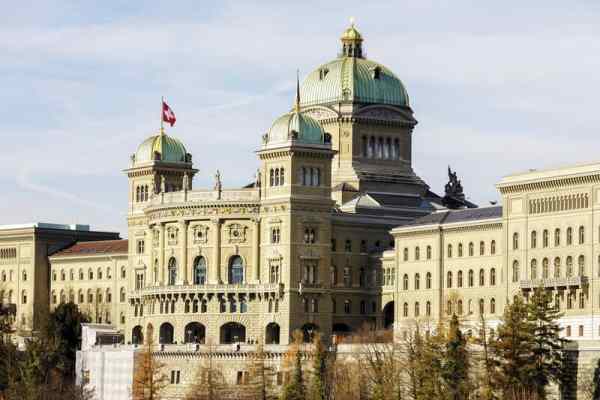Like many governments, Switzerland’s federal government is spending more than it collects in taxes and other revenues. However, a constitutional mechanism known as the debt brake limits how much the government can overspend. This means, in the absence of significant economic growth or higher tax rates, the government must cut spending. This week it outlined cuts that would shave off CHF 2 billion of spending, reported RTS. Bern © Marekusz | Dreamstime.comThe debt brake is designed to prevent chronic deficits and rising debt by only allowing shortfalls in exceptional circumstances. It enjoys strong support among the population. 85% of voters approved the constitutional provision for the mechanism in 2001. Even today it enjoys strong support among the population and in parliament.
Topics:
Investec considers the following as important: Editor's Choice, Personal finance, Politics
This could be interesting, too:
Investec writes The global brands artificially inflating their prices on Swiss versions of their websites
Investec writes Swiss car insurance premiums going up in 2025
Investec writes The Swiss houses that must be demolished
Investec writes Swiss rent cuts possible following fall in reference rate
Like many governments, Switzerland’s federal government is spending more than it collects in taxes and other revenues. However, a constitutional mechanism known as the debt brake limits how much the government can overspend. This means, in the absence of significant economic growth or higher tax rates, the government must cut spending. This week it outlined cuts that would shave off CHF 2 billion of spending, reported RTS.

The debt brake is designed to prevent chronic deficits and rising debt by only allowing shortfalls in exceptional circumstances. It enjoys strong support among the population. 85% of voters approved the constitutional provision for the mechanism in 2001. Even today it enjoys strong support among the population and in parliament.
Recent large deficits due to the Covid pandemic and Ukraine refugee crisis were allowed under the debt brake rules because of their exceptional nature. While the pandemic has passed, the refugee crisis continues. Ukrainian refugees are costing Switzerland around CHF 1 billion a year. By 2028, any such expenses will no longer be deemed essential. This means, in the absence of sufficient economic growth, taxes will need to rise to cover these expenses should they exist from 2028 onwards.
In addition, the federal government faces further head winds. The main ones are funding deteriorating state pension finances brought about by an ageing populous, rising health insurance subsidies, refugees and rising military expenditure. On the current path, there will be a shortfall of CHF 2.5 billion by 2025, which will rise to CHF 3.9 billion by 2032. Faced with these projections the government has identified spending cuts to balance its books.
The cuts
The federal government currently tops up Switzerland’s unemployment insurance fund. From 2025, it plans to cut its contribution by an average of CHF 250 million a year for five years. Unions and insurance funds have criticised this decision.
A cut of CHF 450 million to rail infrastructure funding will be accelerated and spread over 2025 (-300) and 2026 (-150) instead of over three years. Rail in Switzerland is heavily subsidised. Tickets and other revenue only cover around two thirds of operating costs. The rest is funded by taxpayers.
Regional development funding will be completely axed in 2025 and cut in half in 2026 and 2027.
Funding for EPFL and ETHZ, Switzerland’s two federal universities, will be cut by CHF 100 million on a one off basis. This will have no impact on the institutions, which have CHF 1.4 billion of reserves.
Finally, it is hoped that higher tax on tobacco products could raise an extra CHF 35 million. This change will need to be approved by parliament.
Another potential problem for future government finances is the outcome of two upcoming votes. One in March 2024 aims to increase state pensions by 8% (an extra 13th month of pension). Another aims to extend federal funding of childcare at a cost of CHF 770 million a year. In the absence of higher tax revenue, the government would be forced to find further spending cuts to cover these additional expenses. It has already said it would cut childcare funding by CHF 400 million, passing the problem to the cantons, which would need to find more revenue or cut spending elsewhere.
The recently announced cuts are short term sticking plasters. To solve the problem more durably will require structural changes. The federal finance department will present a report on such changes between now and the end of March 2024.
More on this:
RTS article (in French) – Take a 5 minute French test now
For more stories like this on Switzerland follow us on Facebook and Twitter.
